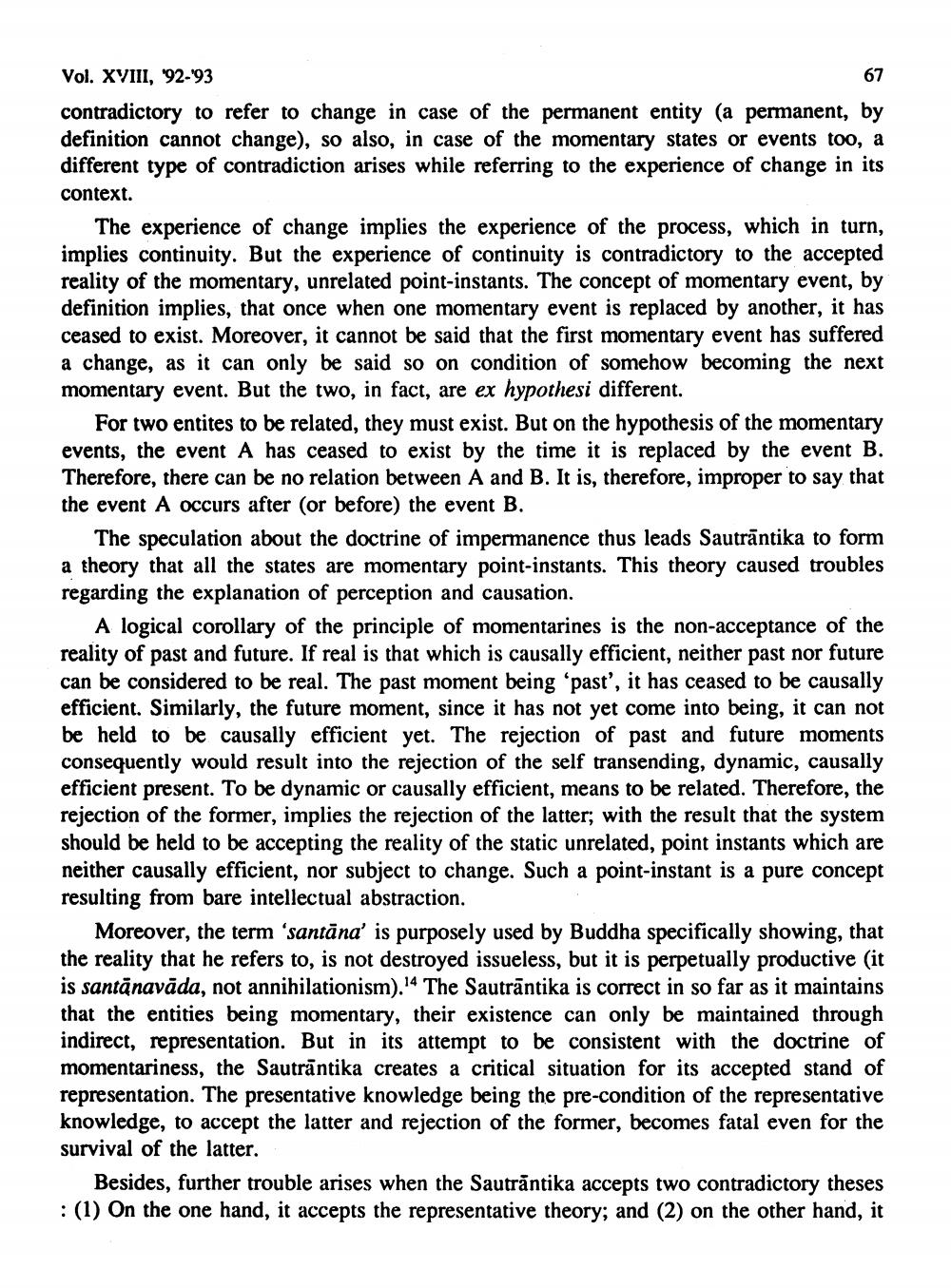________________
62
Vol. XVIII, 92-93 contradictory to refer to change in case of the permanent entity (a permanent, by definition cannot change), so also, in case of the momentary states or events too, a different type of contradiction arises while referring to the experience of change in its context.
The experience of change implies the experience of the process, which in turn, implies continuity. But the experience of continuity is contradictory to the accepted reality of the momentary, unrelated point-instants. The concept of momentary event, by definition implies, that once when one momentary event is replaced by another, it has ceased to exist. Moreover, it cannot be said that the first momentary event has suffered a change, as it can only be said so on condition of somehow becoming the next momentary event. But the two, in fact, are ex hypothesi different.
For two entites to be related, they must exist. But on the hypothesis of the momentary events, the event A has ceased to exist by the time it is replaced by the event B. Therefore, there can be no relation between A and B. It is, therefore, improper to say that the event A occurs after (or before) the event B.
The speculation about the doctrine of impermanence thus leads Sautrāntika to form a theory that all the states are momentary point-instants. This theory caused troubles regarding the explanation of perception and causation.
A logical corollary of the principle of momentarines is the non-acceptance of the reality of past and future. If real is that which is causally efficient, neither past nor future can be considered to be real. The past moment being 'past', it has ceased to be causally efficient. Similarly, the future moment, since it has not yet come into being, it can not be held to be causally efficient yet. The rejection of past and future moments consequently would result into the rejection of the self transending, dynamic, causally efficient present. To be dynamic or causally efficient, means to be related. Therefore, the rejection of the former, implies the rejection of the latter; with the result that the system should be held to be accepting the reality of the static unrelated, point instants which are neither causally efficient, nor subject to change. Such a point-instant is a pure concept resulting from bare intellectual abstraction.
Moreover, the term 'santāna' is purposely used by Buddha specifically showing, that the reality that he refers to, is not destroyed issueless, but it is perpetually productive (it is santānavāda, not annihilationism).14 The Sautrāntika is correct in so far as it maintains that the entities being momentary, their existence can only be maintained through indirect, representation. But in its attempt to be consistent with the doctrine of momentariness, the Sautrāntika creates a critical situation for its accepted stand of representation. The presentative knowledge being the pre-condition of the representative knowledge, to accept the latter and rejection of the former, becomes fatal even for the survival of the latter.
Besides, further trouble arises when the Sautrăntika accepts two contradictory theses : (1) On the one hand, it accepts the representative theory; and (2) on the other hand, it




